- We ship only in India and for domestic (India) buyers, orders are shipped through registered domestic courier companies and/or speed post only.
- Shipping is free all over India unless specified on the product page or informed explicitly by our customer care prior to shipping.
- Orders are generally shipped on the same day or the next day but may take up to 3 – 10 working days depending on the number of orders and external factors from the date of placing the order and delivering of the shipment subject to Courier Company/post office norms.
- theforestherbs.com is not liable for any delay in delivery by the courier company / postal authorities and only guarantees to hand over the consignment to the courier company or postal authorities within 3 working days (done usually by next working day of placing order) from the date of the order and payment or as per the delivery date agreed at the time of order confirmation.
- Delivery of all orders will be to the delivery address entered by the buyer at the time of placing the order.
- If you have any queries regarding our Shipping & Delivery Policy, feel free to Contact us.
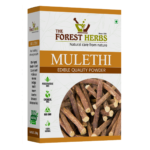
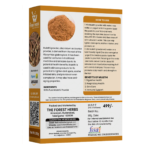
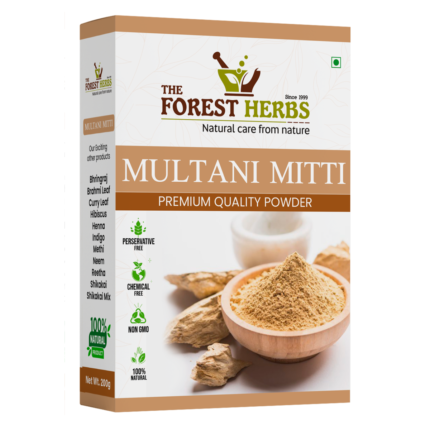
Multani Mitti Powder for Skin and Hair
₹499.00 Original price was: ₹499.00.₹175.00Current price is: ₹175.00.
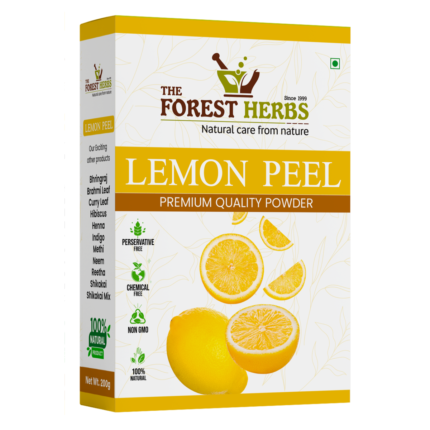
Lemon Powder
₹199.00
Mulethi Powder (Licorice) for Skin, Hair and Eating
- Quality: Clean and Sorted
- Availability: In Stock
- Expected delivery time: 4-5 business days anywhere in India.
20
People watching this product now!
463
Items sold in last 7 days
Mulethi powder, also known as Licorice powder, is derived from the roots of the Licorice plant (Glycyrrhiza glabra). It has been used for centuries in traditional medicine and is valued for its sweet flavor and various health benefits. Here’s a description along with bullet points about Mulethi powder, including how it is prepared:
Key Bullet Points:
- Sweet Flavor:
-
- Natural Sweetness: Mulethi powder has a distinctive sweet flavor, making it a popular ingredient in both culinary and medicinal applications.
- Glycyrrhizin Content:
-
- Active Compound: Glycyrrhizin is the main bioactive compound in licorice, responsible for its characteristic sweetness.
- Anti-Inflammatory: Glycyrrhizin exhibits anti-inflammatory properties that contribute to its medicinal use.
- Respiratory Health:
-
- Cough and Cold Relief: Mulethi is traditionally used to relieve symptoms of coughs, colds, and respiratory issues.
- Expectorant: It may act as an expectorant, helping to loosen mucus and ease congestion.
- Digestive Health:
-
- Soothes Stomach: Mulethi is known for its soothing effect on the stomach lining, making it beneficial for individuals with digestive issues.
- Anti-Ulcer: It has potential anti-ulcer properties, protecting the stomach lining from irritation.
- Skincare Benefits:
-
- Anti-Inflammatory: Applied topically, Mulethi powder may help soothe irritated skin and reduce inflammation.
- Brightens Skin: Licorice is known for its skin-brightening properties, making Mulethi powder a popular ingredient in skincare routines.
- Adrenal Support:
-
- Adaptogen: Mulethi is considered an adaptogenic herb, which means it may help the body adapt to stress and support the adrenal glands.
- Hormonal Balance:
-
- Phytoestrogens: Licorice contains compounds with mild estrogenic effects, and it is believed to help balance hormones in some cases.
- Oral Health:
-
- Anti-Bacterial: Mulethi powder has antibacterial properties, and it is sometimes used in oral care products to promote oral hygiene.
- Freshens Breath: It may contribute to freshening breath and preventing bad breath.
- How Mulethi Powder is Prepared:
-
- Harvesting Licorice Roots: Mulethi powder is made from the roots of the Licorice plant. The roots are harvested, typically after a few years of growth.
- Cleaning: The roots are thoroughly cleaned to remove dirt and impurities.
- Drying: The cleaned roots are then dried, traditionally in the sun, until they become completely dehydrated.
- Grinding: Once dried, the roots are ground into a fine powder using a spice grinder or mortar and pestle.
- Storage: The powdered Mulethi is stored in airtight containers to preserve its sweetness and effectiveness.
- How to Use:
-
- Tea Infusion: Mulethi powder can be used to make a soothing tea by infusing it in hot water.
- Culinary Uses: It is used as a natural sweetener in some culinary dishes and desserts.
- Skincare Masks: Mulethi powder can be mixed with other natural ingredients to create face masks for skin brightening and soothing effects.
| Size |
200g |
|---|
Rated 0 out of 5
0 reviews
Rated 5 out of 5
0
Rated 4 out of 5
0
Rated 3 out of 5
0
Rated 2 out of 5
0
Rated 1 out of 5
0
Be the first to review “Mulethi Powder (Licorice) for Skin, Hair and Eating”
You must be logged in to post a review.
RELATED PRODUCTS
-33%
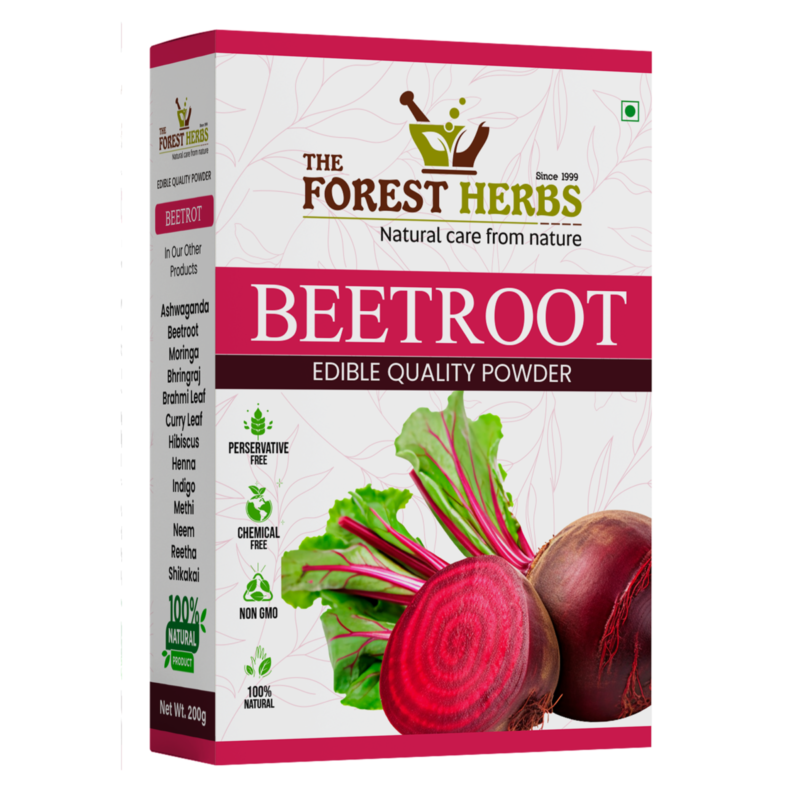
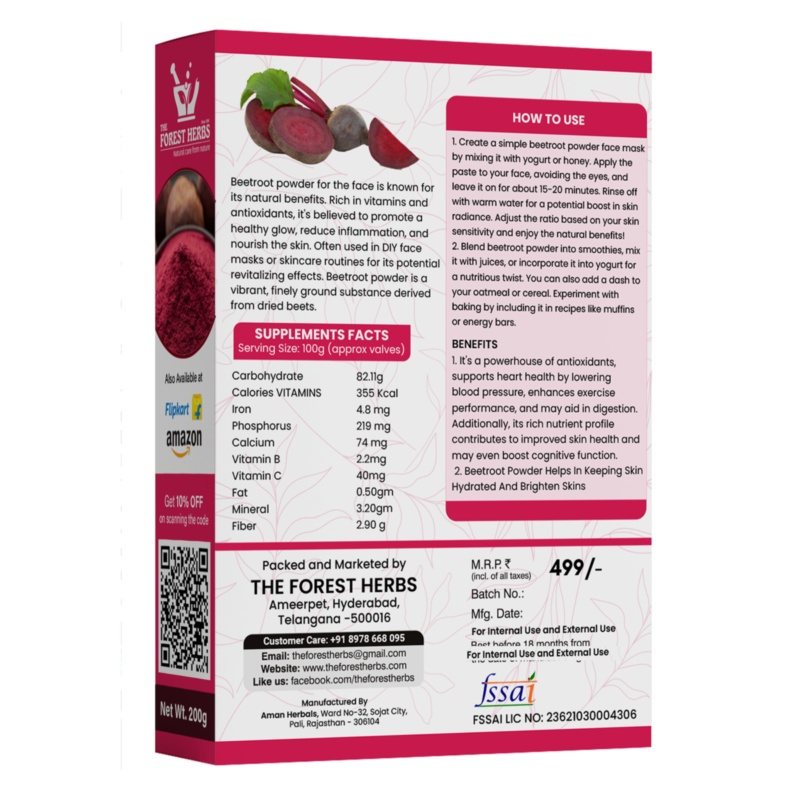
Select options
This product has multiple variants. The options may be chosen on the product page
Beetroot Powder for Face | Lips | Hair | Glowing & Shiny Skin
Estimated delivery on 8 - 10 February, 2026
-27%
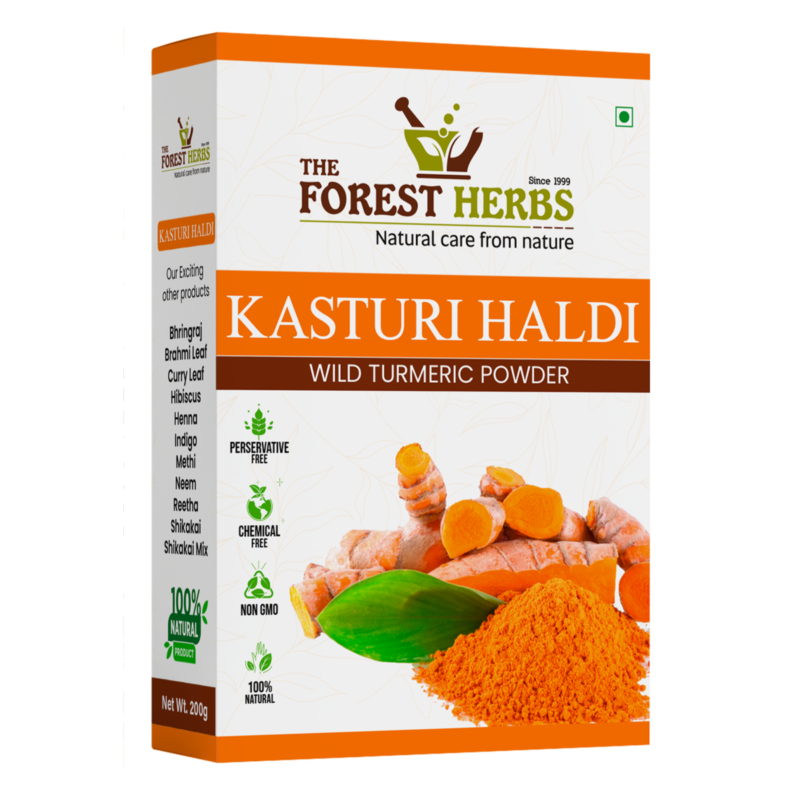
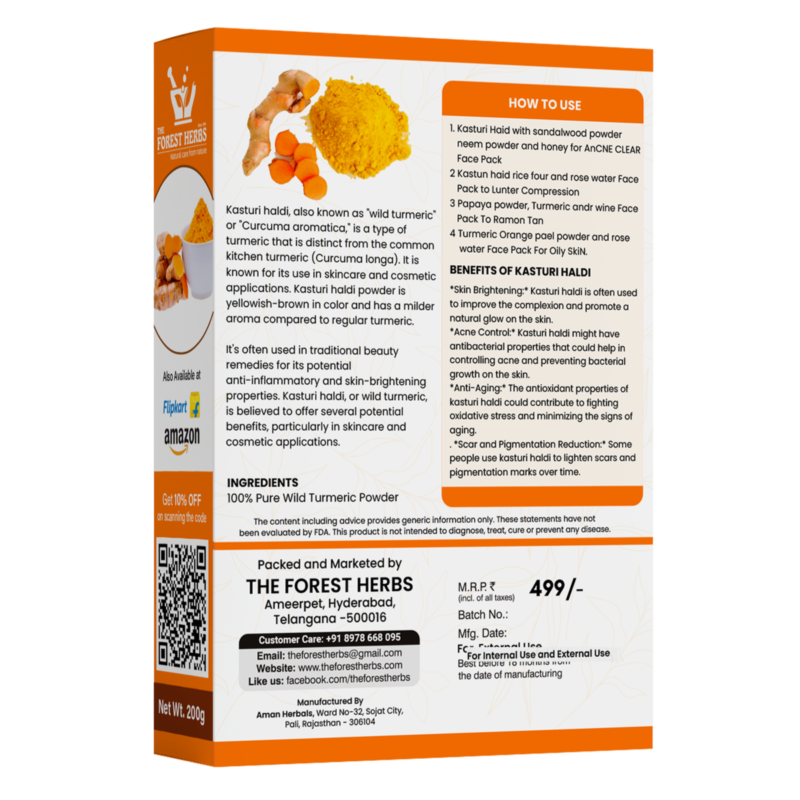
Select options
This product has multiple variants. The options may be chosen on the product page
Kasturi Haldi for Face and Skin – Wild Turmeric Powder for Skin Whitening
Estimated delivery on 8 - 10 February, 2026
-56%
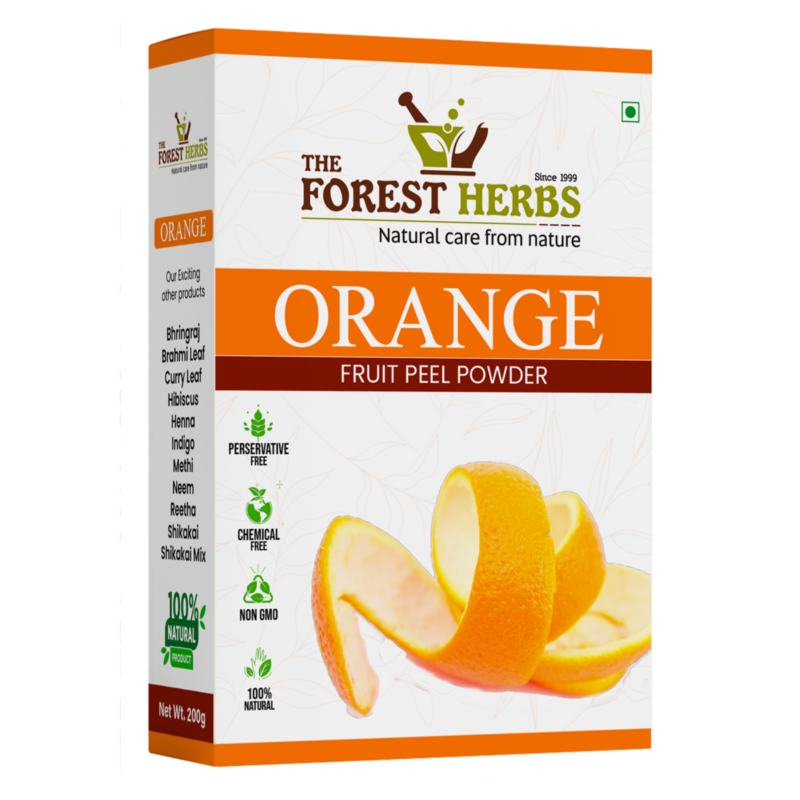
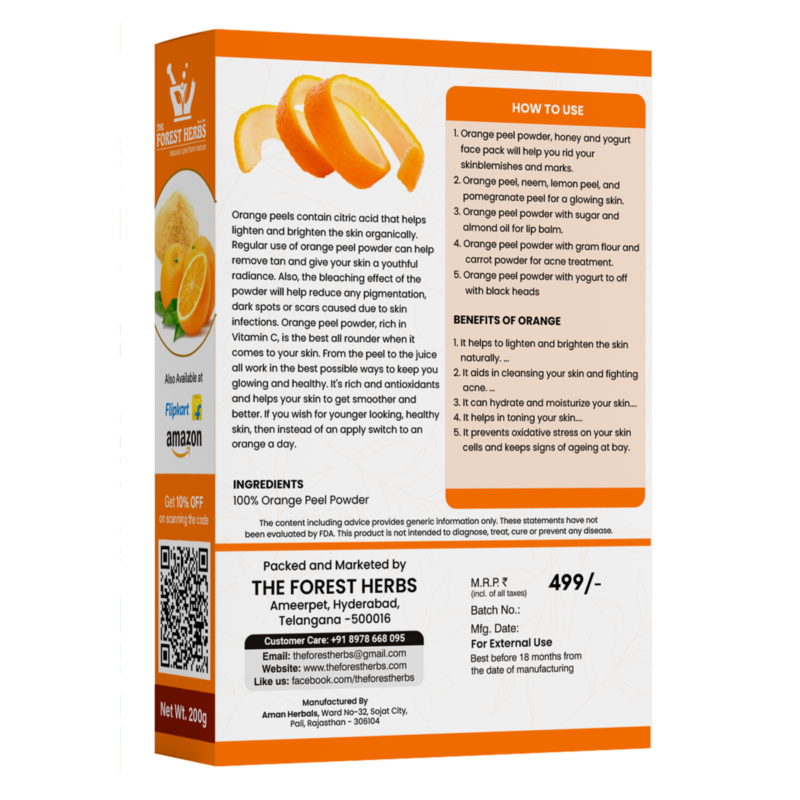
Select options
This product has multiple variants. The options may be chosen on the product page
Orange Peel Powder for Skin and Hair
Estimated delivery on 8 - 10 February, 2026

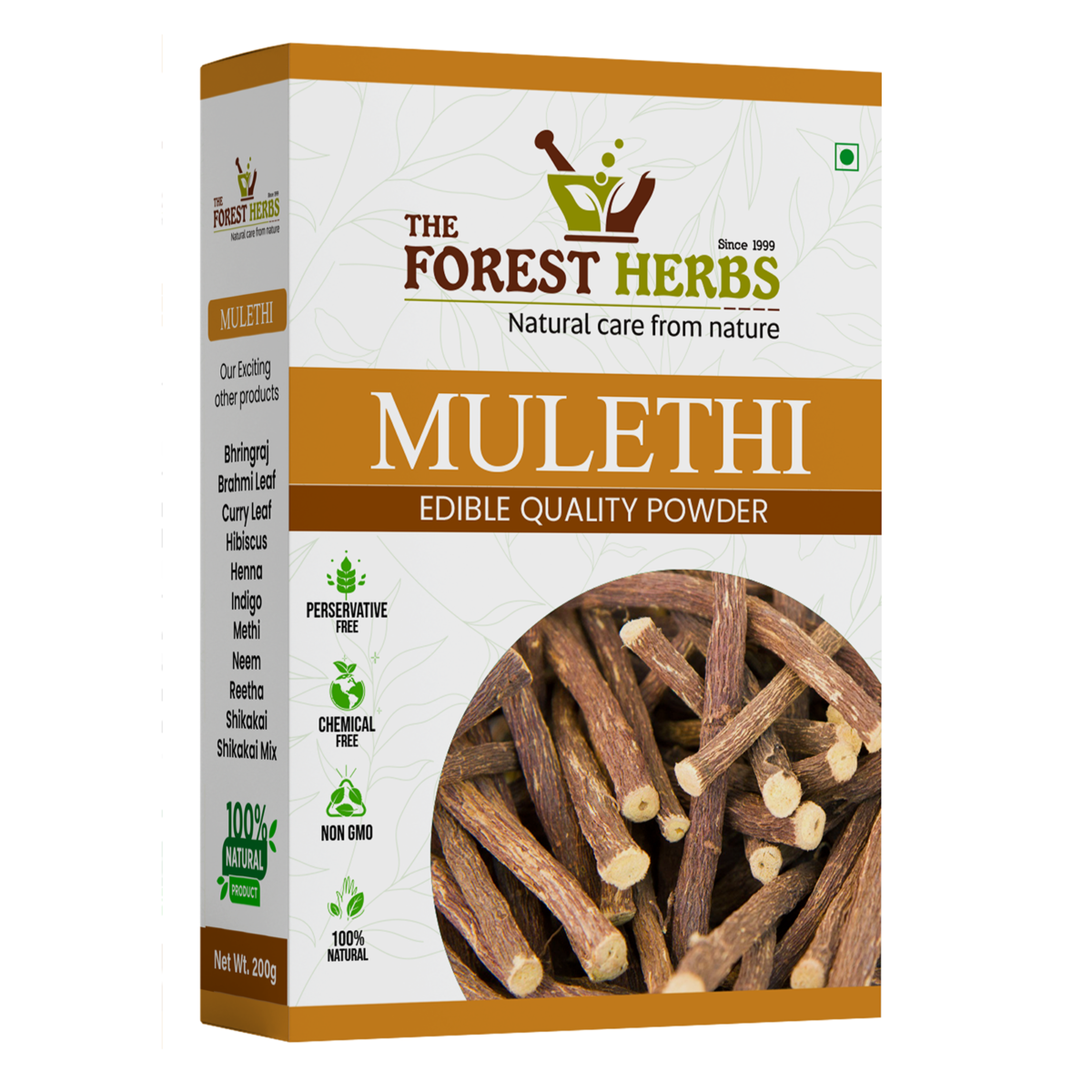
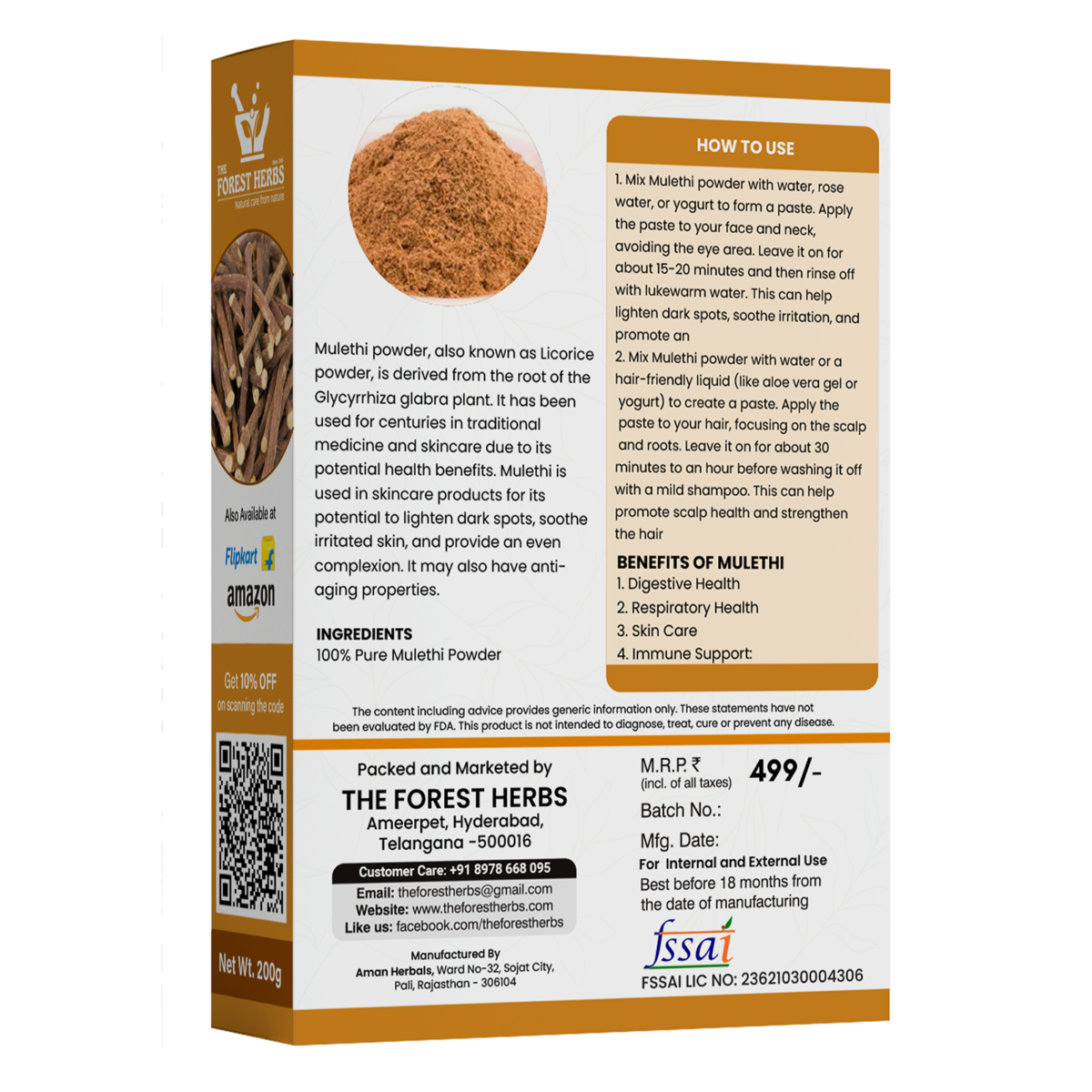
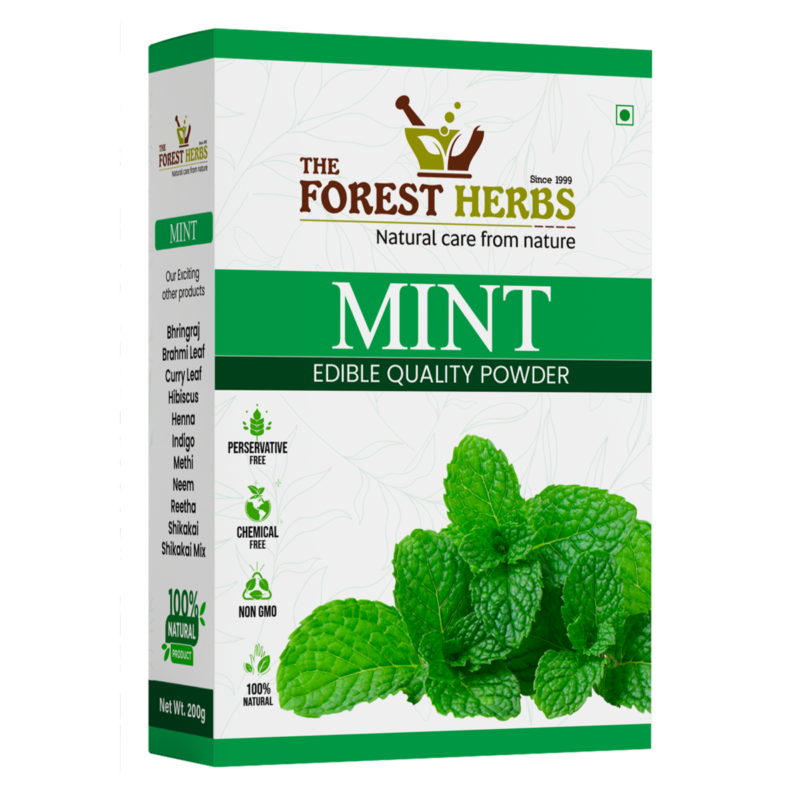
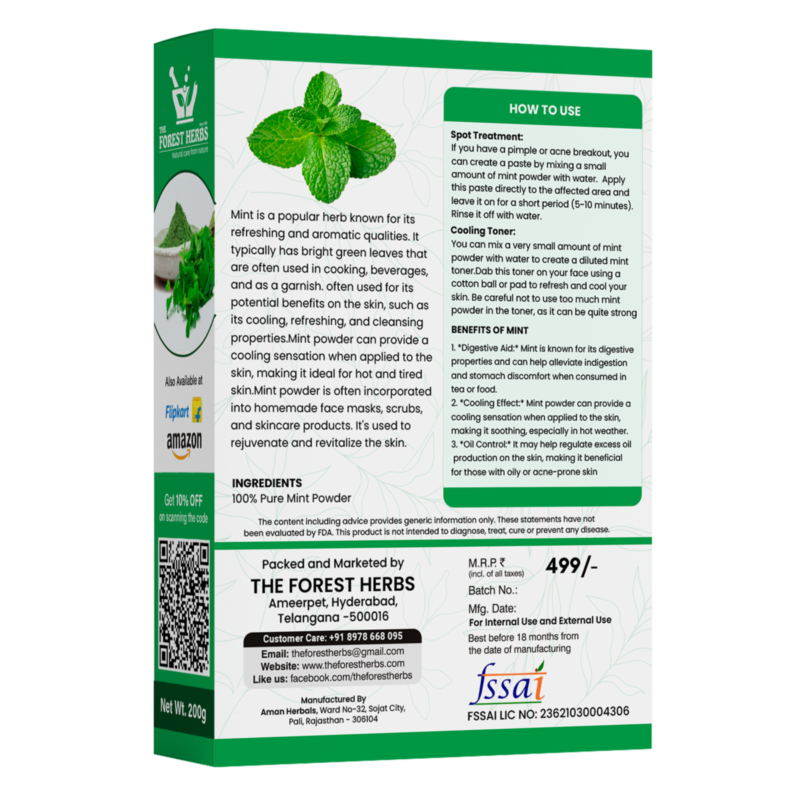
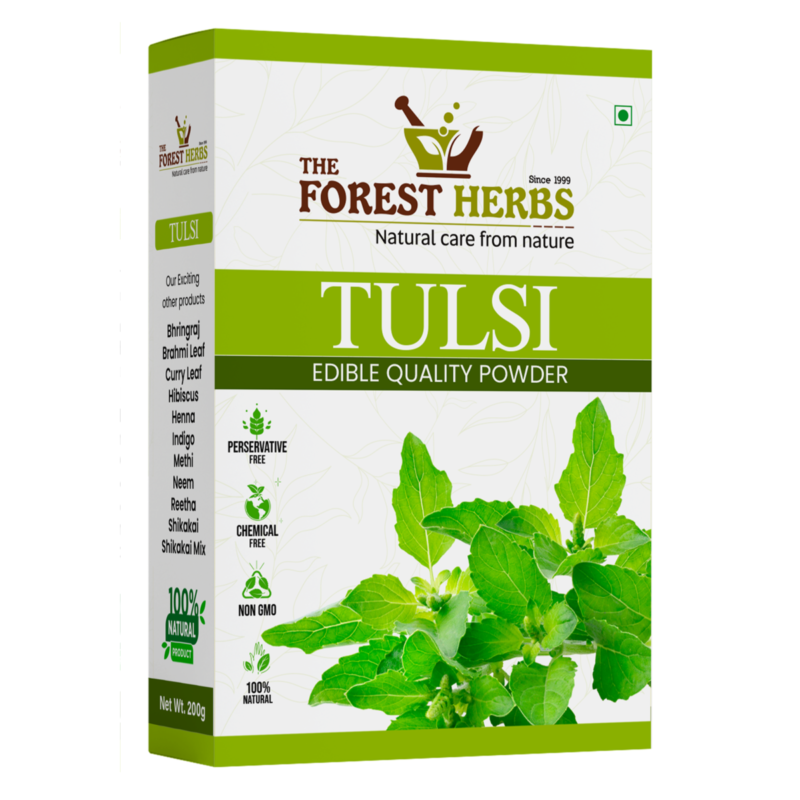
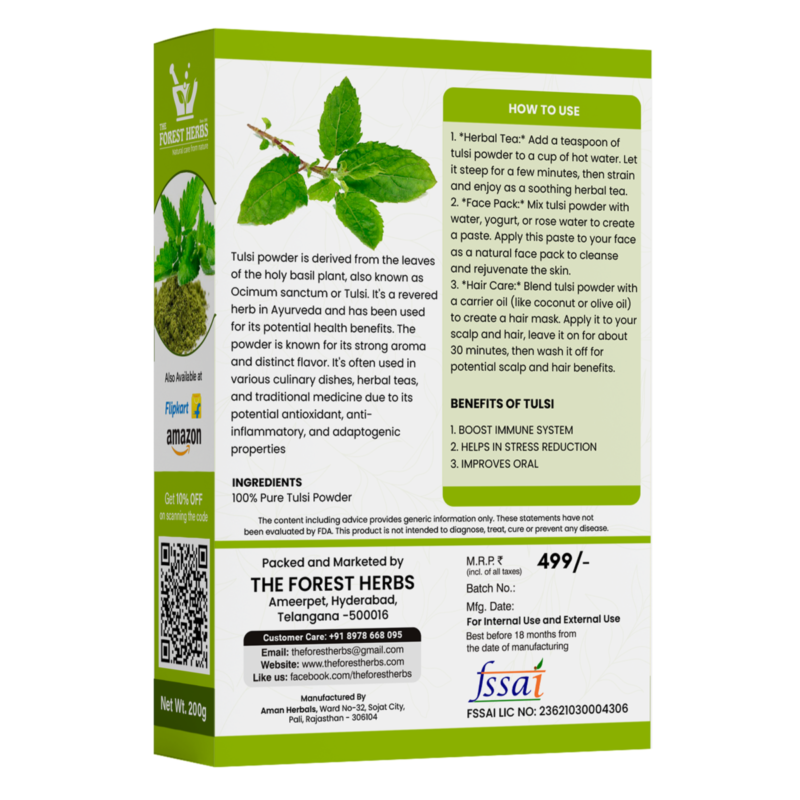

Reviews
Clear filtersThere are no reviews yet.